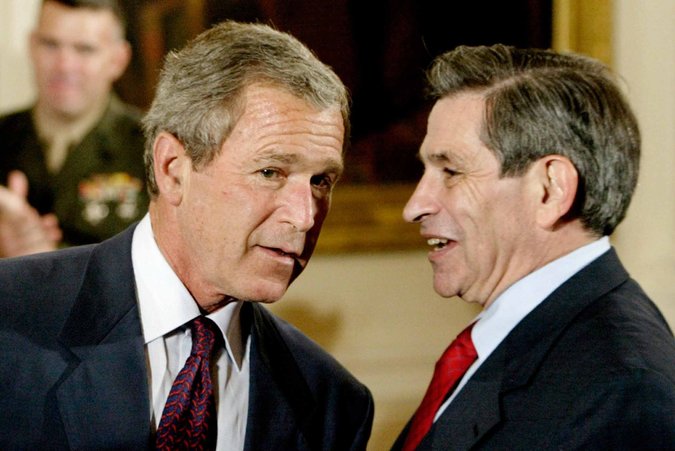I’ve said this before, but before we vote for any politician it would be really instructive to study where they stood at the time of the 2008 economic collapse and in its aftermath. Those who argued for austerity, for taking money out of a greatly diminished economy, should have to answer serious questions about that stance.
In a similar vein, the Dubya tragedy of the Iraq War is playing out again with Jeb Bush running for President. That’s not merely because his brother oversaw the disaster–though he agreed, if fleetingly, that he would still have supported the invasion knowing what we now know–but also due his staffing up with some of the “stars” of his sibling’s inner circle. You shouldn’t be damned for making a mistake but perhaps you should be if it was such a damnable one.
From Paul Krugman at the New York Times:
Jeb Bush wants to stop talking about past controversies. And you can see why. He has a lot to stop talking about. But let’s not honor his wish. You can learn a lot by studying recent history, and you can learn even more by watching how politicians respond to that history.
The big “Let’s move on” story of the past few days involved Mr. Bush’s response when asked in an interview whether, knowing what he knows now, he would have supported the 2003 invasion of Iraq. He answered that yes, he would. No W.M.D.? No stability after all the lives and money expended? No problem.
Then he tried to walk it back. He “interpreted the question wrong,” and isn’t interested in engaging “hypotheticals.” Anyway, “going back in time” is a “disservice” to those who served in the war.
Take a moment to savor the cowardice and vileness of that last remark. And, no, that’s not hyperbole. Mr. Bush is trying to hide behind the troops, pretending that any criticism of political leaders — especially, of course, his brother, the commander in chief — is an attack on the courage and patriotism of those who paid the price for their superiors’ mistakes. That’s sinking very low, and it tells us a lot more about the candidate’s character than any number of up-close-and-personal interviews.
Wait, there’s more: Incredibly, Mr. Bush resorted to the old passive-voice dodge, admitting only that “mistakes were made.” Indeed. By whom? Well, earlier this year Mr. Bush released a list of his chief advisers on foreign policy, and it was a who’s-who of mistake-makers, people who played essential roles in the Iraq disaster and other debacles.•
Tags: Jeb Bush, Paul Krugman

